Chinese leader Xi Jinping’s recent visit to the so-called Xinjiang Uyghur Autonomous Region for the 70th anniversary of its founding has drawn harsh criticism from Uyghur exiles and human rights experts, who say the carefully staged festivities conceal ongoing repression.
According to Deutsche Welle (DW, Sept. 26, 2025), Chinese state media livestreamed scenes of Xi Jinping receiving red-carpet welcomes, while residents in Uyghur dress performed traditional songs and dances. But for exiled Uyghur poet Aziz Isa Elkun, these images were too painful to watch.
“I couldn’t dare to watch. It was just a second or two… and I stopped,” Elkun, now living in London, told DW. “The festivities stood in stark contrast to what Xi did just a couple of years ago to the Uyghur community. Now you have people singing for you. It’s ridiculous.”
Elkun fled East Turkistan nearly three decades ago after being persecuted by Chinese authorities. He said the recent celebrations were not a genuine expression of Uyghur culture but “a political show aimed at covering up atrocities.”
“This so-called anniversary is not for Uyghurs,” he said. “It is staged to show the world a fake picture while our people remain imprisoned, under surveillance, and stripped of their culture and faith. You cannot celebrate while genocide policies continue in the background.”
Detentions, forced labor, and erased culture
International reports support Elkun’s warnings. A 2022 UN report accused China of “serious human rights violations” in Xinjiang that may amount to crimes against humanity. The Atlantic Council (2022) estimated that at least half a million Uyghurs had been detained in prisons or so-called “vocational training centers,” which survivors describe as internment camps.
Scholars such as Darren Byler of Simon Fraser University note that the region has been turned into “a high-tech surveillance space” where Uyghurs’ movements, communications, and even digital behavior are tracked. Though Beijing has made some security checkpoints less visible to outsiders, Byler told DW that “license-plate and facial-recognition systems are still in operation. If you’re a Xinjiang resident, the government kind of knows where you are all the time.”
Meanwhile, forced labor programs continue to transfer Uyghurs into textile, agriculture, and manufacturing industries. Analysts argue that these programs are designed to assimilate Uyghurs into a state-controlled workforce while dismantling their cultural and religious identity.
Tourism masks repression
Official statistics highlight Xinjiang’s booming tourism sector. State-run China Daily (2025) reported that the region received 302 million tourist visits last year, generating more than $50 billion in revenue. During the anniversary, Xi called for further integration of tourism and culture.
But experts argue that this “tourism boom” conceals the reality on the ground. Timothy Grose, professor of China Studies at Rose-Hulman Institute of Technology, told DW that visitors only see curated spectacles: “People aren’t seeing what’s happening at the village level, where many of these policies of cultural erasure are being implemented.”
Access for independent researchers has also been severely restricted. “Access has been virtually cut off,” Grose said, noting that foreign scholars are limited to tightly managed tours with no real opportunity to investigate conditions.
Diaspora voices persist
Despite repression inside Xinjiang, Uyghur exiles remain determined to preserve their identity. Around the world, Uyghur diaspora communities have established cultural centers, published books, and organized language and religious education for younger generations.
Aziz Isa Elkun is one of these voices. Now a researcher at SOAS University of London, he continues to write poetry about his homeland and speak out publicly, even as Chinese police regularly harass his family members still living in Xinjiang.
“I know the price is heavy, but I cannot be silent,” Elkun said. “Uyghurs in exile must tell the truth of what is happening to our people. I do believe justice will prevail, no matter how many staged dances Beijing shows the world.”
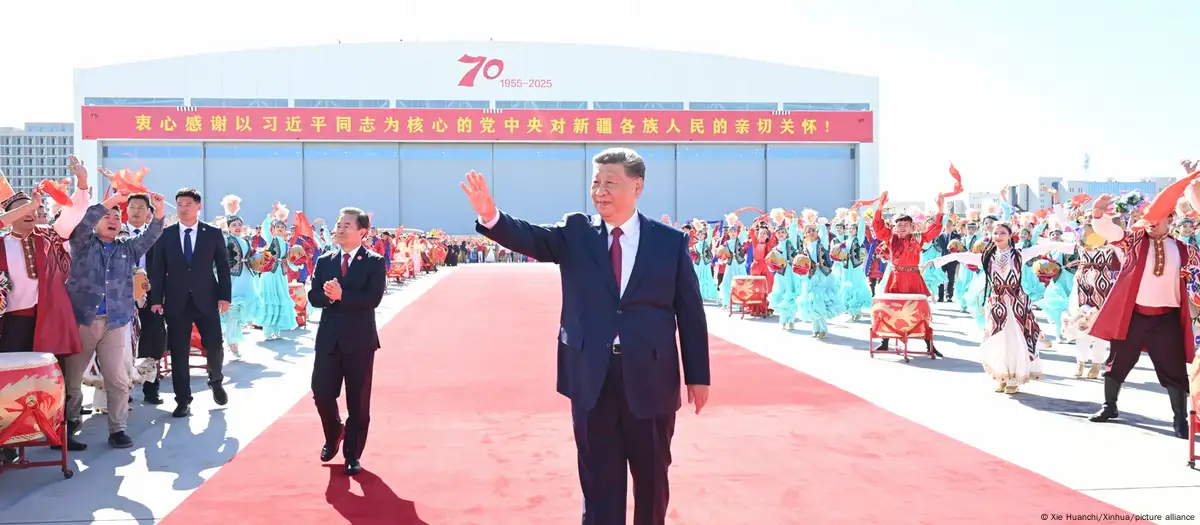
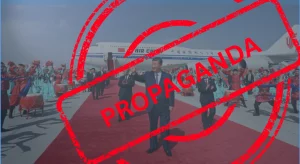
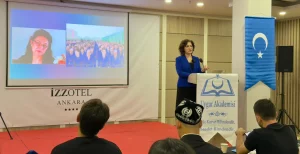



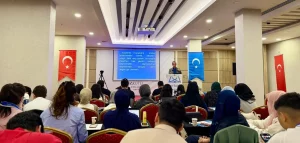
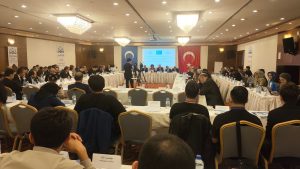

Be First to Comment